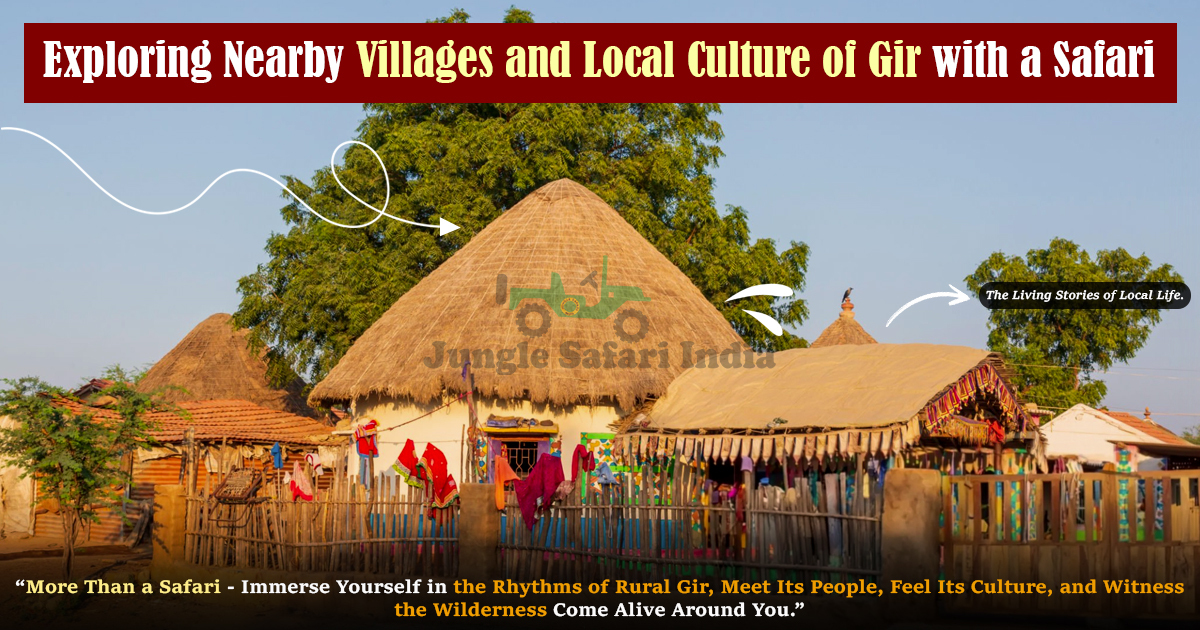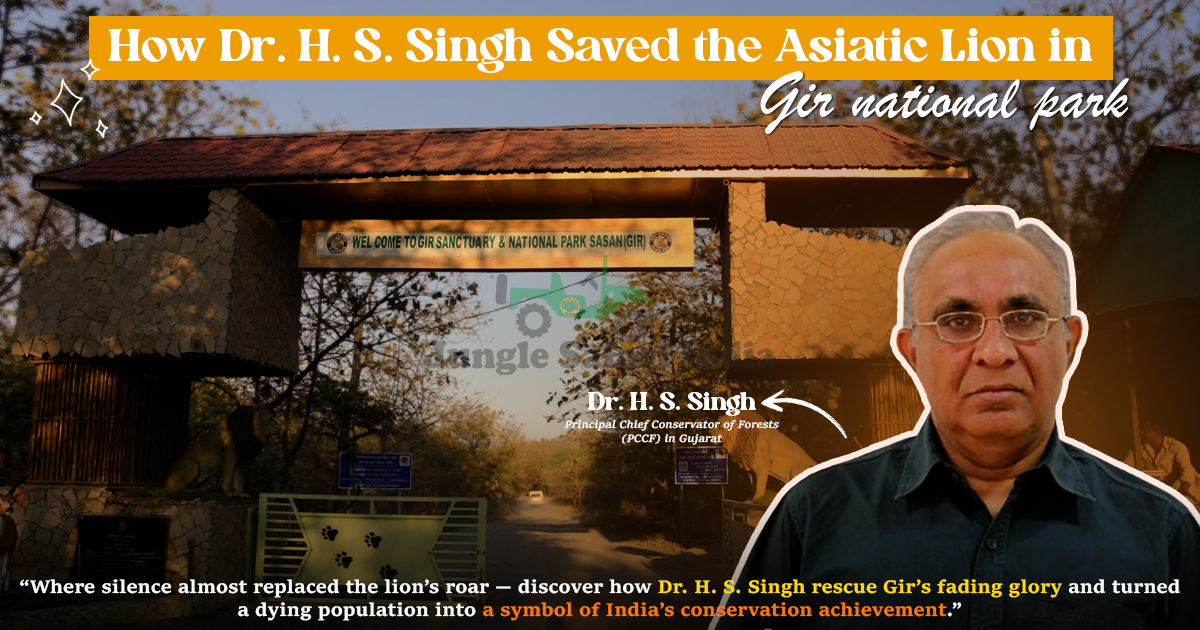Gujarat High Court Cancels Lion Disturbance Case
Gir National Park
Gir safari booking
- Date : August 26, 2025
The case against the television journalist charged with disturbing a lion near Gir National Park has been cancelled by the Gujarat High Court. The court gave this decision after looking carefully at the facts and the law. This incident happened in November 2009. The location was Madhupur Road, which is in the area where the Asiatic lions live in Gujarat. This place is very close to Gir National Park, which is famous all over India for its lions.
The case became important because it involved three different issues: the rules for protecting wildlife, the legal process in India, and how people should behave when they are near protected animals. Many people who make Gir safari bookings for lion watching were also interested in the case, because it showed what is allowed and not allowed when you are in a wildlife area.
What Happened In 2009
In November 2009, late at night, Manish Bhupendrabhai Panwala, then working with NDTV, was travelling in a Scorpio SUV. Two NGO members were also with him. They were near Madhupur Road, which falls within the lion’s active area close to Gir National Park. As per the forest department, the group used strong headlights to focus on a lion that was eating its prey. They also clicked photos.
Since this happened at night, it disturbed the lion, which is more active during that time. Nearby forest officers, who were conducting a regular lion count, noticed the vehicle and the lights. They reached the spot quickly and stopped the group. This team from the department took the cameras and the vehicle too. All three people were arrested. The news spread fast because it involved a journalist and Asiatic lions. Wildlife experts also raised concerns about the lion’s safety in such situations.
Charges Against Them
The forest department decided to take legal action. They used the Wildlife (Protection) Act, 1972. Under this law, disturbing wildlife can be considered a serious offense. The department said that by disturbing the lion at night while it was feeding, the group had done something that could be counted as “hunting” under the law.
The reason they said this was because in the law, “hunting” has a wide meaning. It can include not only killing or catching animals, but also disturbing them in a way that affects their natural behaviour. The prosecution (the side bringing the case) said that shining bright lights at night while a lion was eating and taking pictures was a disturbance that needed punishment.
Arguments In Court
In court, the defense lawyer spoke for the journalist and the two NGO members. The defense said that even if the story told by the forest department was correct, the actions of the group did not match the exact meaning of “hunting” in the Wildlife (Protection) Act.
The defense clarified that the group had not killed, caught, poisoned, or trapped the lion. They had also not injured it in any way. The law’s meaning of “hunting” is very specific, and the actions in this case did not fit.
The defense also said that the trial court (the lower court that started the case) did not have the right to begin the case in the way it did. The Wildlife (Protection) Act says that such cases can only be started if a proper complaint is filed by certain authorised people or if a private person gives 60 days’ written notice before filing. But in this case, the case was started only through a chargesheet by the forest department, without the required complaint process.
Court’s Findings On Law
The Gujarat High Court studied Section 2(16)(b) of the Wildlife (Protection) Act carefully. This part of the law explains the meaning of “hunting”. It says that “hunting” includes capturing, killing, poisoning, trapping, or hurting wildlife in any way, and even trying to do any of these things.
The court said that disturbing an animal by itself, even if it is wrong, is not the same as hunting under the law. In this case, the group disturbed the lion, but they did not harm it, trap it, or try to catch it. Because of this, the court decided that the actions described did not fall under the legal definition of “hunting”.
The judges also said that the group’s actions were not wise. Disturbing a lion at night while it is eating is unsafe for humans and is quite bad for the animal. But bad judgment alone is not enough to make it a crime under the part of the law that was used.
Technical Legal Problem
Another important reason why the High Court cancelled the case was because of Section 55 of the Wildlife (Protection) Act. This part of the law says that only certain officials can file a complaint for an offense under the Act. It includes the Chief Wildlife Warden, Director of Wildlife Preservation, or someone approved by these officers. A private person can also file, but they must give a 60-day notice before doing so.
In this case, no such official complaint was made. Instead, the case started from a report similar to a police report made by the forest department. The High Court said this was not the right process. Because the process was wrong, the trial court’s decision to start hearing the case was not legal.
The Court’s View On Conduct
The High Court cancelled the case but also gave its view on the group’s actions. The court said the group did not show proper understanding or care for wildlife, especially protected animals like the Asiatic lion. It said lions in and around Gir National Park must be respected.
Using strong lights and taking photos at night while the lion was eating was not safe or responsible. The journalist agreed that it was wrong. To support lion protection, he gave ₹1 lakh to the Gujarat State Lion Conservation Society for use in lion safety and awareness work.
Final Decision
The Gujarat High Court cancelled the full case for two main reasons.
- First, the legal process to start the case was not followed correctly.
- Second, the actions did not match the legal meaning of “hunting” in the Wildlife (Protection) Act.
Still, the court said a new case can be filed if any authorised officer wants, but it must follow the correct legal process. This judgment matters to everyone visiting or working near Gir National Park. People who make Gir safari bookings must know that disturbing lions, especially at night or while feeding, is not allowed. Rules must be followed.






(0) Comments: